'Distorted face' when going to convert land
Mr. P. (Ba Vi commune, Hanoi ) shared that he was recently very surprised when he applied to change the purpose of use of more than 210 m² of land for perennial crops to residential land, but lost more than 911 million VND in land use fees and a registration fee according to regulations. Meanwhile, according to the old regulations, Mr. P.'s family only had to pay about 455 million VND.
Specifically, according to Decree No. 45 dated May 15, 2014 of the Government regulating land use fees, people only have to pay 50% of the difference between residential land price and agricultural land price for garden and pond land adjacent to houses on the same plot of land.
However, in Decree No. 103 dated July 30, 2024 of the Government regulating land use fees and land rents, people must pay 100% of residential land use fees when changing the purpose of use from agricultural land, minus the land use fees or agricultural land rents.
In Mr. P.'s area, the price of residential land is 4.4 million VND/m² and the price of land for perennial crops is 63,000 VND/m². Thus, the difference for calculating land use fees is 4,337,000 VND/m². If converting 210.2 m² of land, Mr. P. will have to pay more than 911 million VND in land use fees and a registration fee as prescribed.
" For rural people like us, this amount of money is too large, we cannot handle it. Paying such a high conversion amount is no different than buying back our own land, " said Mr. P.
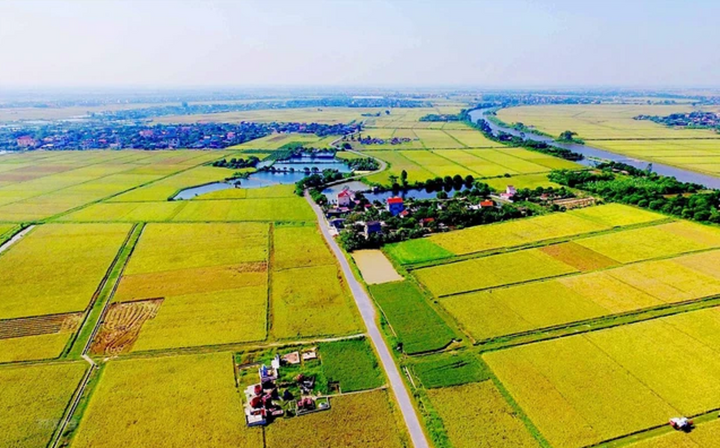
In fact, Mr. P. was not the only one surprised by the sky-high fees after converting agricultural land to residential land. Public opinion was recently stirred by the news that in Nghe An, Mr. Tran Duy Dong (born in 1965) and his wife Nguyen Thi Hong (born in 1970) had a 300 m² plot of garden land, and if they wanted to convert it to residential land, they would have to pay nearly 4.5 billion VND.
According to the old law, the land use fee that Ms. Hong had to pay for this land was 1.9 million VND/m2, equivalent to nearly 600 million VND. However, according to the new regulation, the amount to be paid is 15 million VND/m2, equivalent to 4.5 billion VND.
Ms. Hong said that her family had previously heard that Nghe An province would apply land tax according to the new law from May 21. Therefore, her family submitted the application on May 17. However, the tax officer said that the application would not be sent to the tax authority until June 19, causing her family to be taxed according to the new price.
" My family's land is next to the village cemetery. If we sell it, the money we get won't be enough to cover the fees, not to mention that there won't be many buyers, " said Ms. Tran Van Anh (Mrs. Hong's daughter).
Should not be applied rigidly
Regarding this situation, according to experts, calculating land use fees when converting agricultural land to residential land should be done flexibly, not rigidly.
Lawyer Truong Anh Tu, Chairman of TAT Law Firm, emphasized that the conversion of residential land use purposes needs to be clearly classified, with transparent guidance and appropriate support mechanisms, instead of rigidly applying a single price calculation level.
Not all cases of land use conversion should be put into the same policy framework. If a household converts to build a house and settle down, it is necessary to consider exemption, reduction or extension of land use fee payment schedule. Conversely, if the conversion is for subdivision or business, applying market price is appropriate.
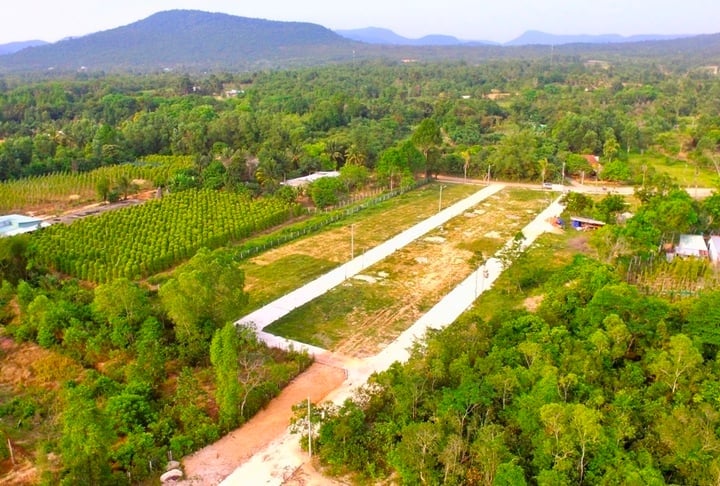
" It is very important to distinguish between real housing needs and investment and business behavior in order to flexibly apply land use fee calculation methods.
The 2024 Land Law is a major reform step, but to be effective, decrees and guidelines need to specify classification criteria, directions for handling applications submitted before the new land prices take effect, and support mechanisms for vulnerable groups. The policy will only play its role if it creates conditions for people to live stably on their legal land, instead of forcing them to bear financial burdens beyond their capacity simply because of a lack of timely guidance , "Mr. Tu emphasized.
Sharing the same view, Dr. Le Dang Doanh - former Director of the Central Institute for Economic Management - also said that land use fees when converting must be based on the purpose of conversion.
If you change the purpose of use and then sell it, you must collect the percentage that has been exempted.
As for cases of changing the purpose to residential land, there is an appropriate percentage and regulations on how long it cannot be transferred to control the transfer of land use rights and then selling them to take advantage of the policy.
According to Mr. Doanh, to do this, it is necessary to base on the land use limit of each individual, household, area, and region.
For example, if an individual reaches the age of marriage but does not have land, and is given land by his/her father, but must transfer the right to use other types of land to residential land, what percentage will be collected? This case is different from having residential land but still receiving incentives when transferring the right to use land.
The policy needs to be applied flexibly to ensure fairness, aiming at the goal of everyone having a home to live in. Localities in the future when announcing land prices must closely follow the social infrastructure in that area, urbanization, planning, actual transactions, demand and land prices at the previous time to come up with the most accurate price list.
Professor Dang Hung Vo - former Deputy Minister of Natural Resources and Environment - also said that it is necessary to consider the specific purpose of land conversion. If the conversion is for the reason of expanding residential land due to family needs, not for business, then it is allowed to apply a price difference between residential land and agricultural land.
If the land use rights are transferred for commercial purposes, the fee is collected according to the market price list.
" Land finance policy must have limits to know which cases are for commercial purposes and which cases are for use purposes. When transferring rights for what purpose, it must be understood, it cannot be applied mathematically ," Mr. Vo emphasized.
At a press conference on the afternoon of July 2 on the plan to "resolve difficulties" for people when they have to pay 100% of the difference between residential land prices and agricultural land prices, Ms. Nguyen Thi Thoa, Deputy Director of the Department of Public Asset Management (Ministry of Finance) said that the Ministry of Finance has sent a document to localities requesting reports and assessments on land use fee collection for individuals and households. From the 2013 Land Law to the 2024 Land Law, there is no distinction in the provisions on financial obligations for households and individuals when granting land use right certificates, recognizing land use rights or changing land use purposes.
" The 2024 Land Law removes the land price framework, and assigns localities to issue land price lists to get closer to market prices. We have anticipated the possibility that the land price list will increase, while financial obligations are still calculated according to the prices in the land price list. After synthesizing reports from localities, the Ministry will make a comprehensive assessment and coordinate with the Ministry of Agriculture and Environment to review and propose amendments to the provisions of the law ," Ms. Thoa informed.
According to Ms. Thoa, the Ministry of Finance is seeking comments on the draft Decree amending and supplementing a number of articles of Decree No. 103/2024 (regulations on land use fees and land rent). In particular, the Ministry proposes to add Clause 6 to Article 52 to handle transitional cases.
Specifically, this supplement applies to households and individuals who change the land use purpose from agricultural land in the same plot of land with a house (previously identified as garden land, pond in the same plot of land with a house but not recognized as residential land) to residential land.
The Ministry of Finance proposes that land use fees should be collected at 50% of the difference between land use fees based on residential land prices and agricultural land prices, at the time the competent authority issues a decision allowing the change of land use purpose.
“ We are finalizing the draft decree to seek comments from the Ministry of Justice ,” said the Deputy Director of the Department of Public Asset Management.
Source: https://baolangson.vn/chuyen-dat-nong-nghiep-sang-dat-o-hoang-hot-tien-su-dung-dat-cao-dot-bien-5052884.html




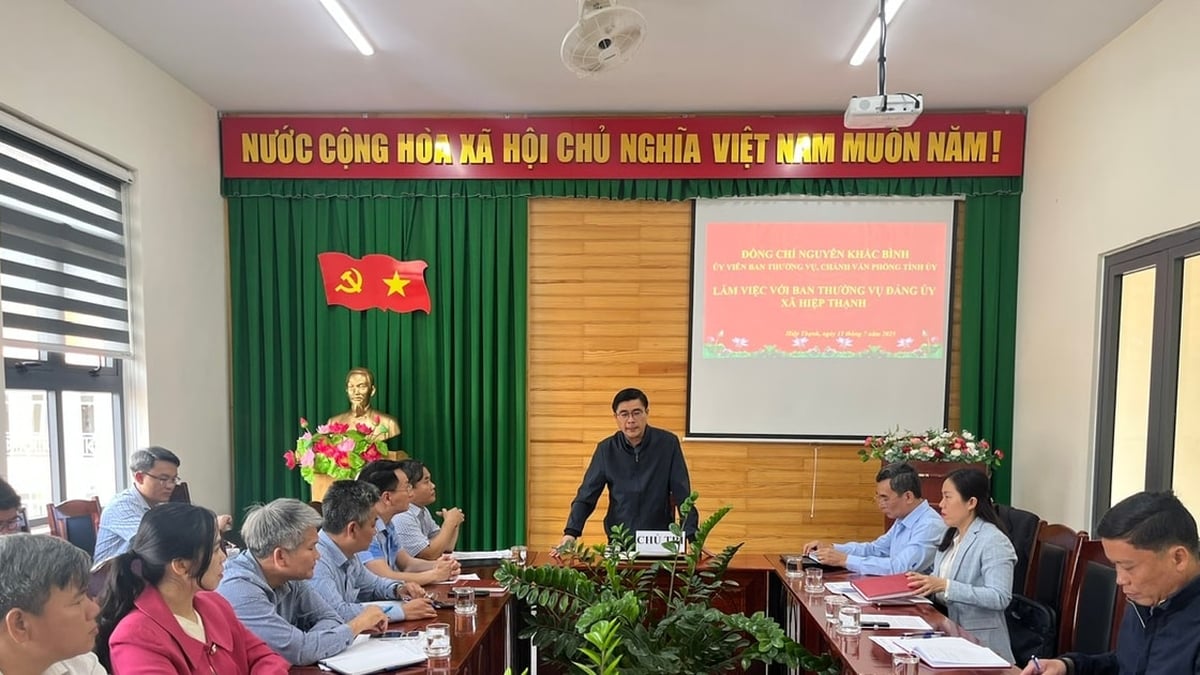

























![[Photo] Gia Lai provincial leaders offer flowers at Uncle Ho's Monument with the ethnic groups of the Central Highlands](https://vphoto.vietnam.vn/thumb/1200x675/vietnam/resource/IMAGE/2025/7/9/196438801da24b3cb6158d0501984818)





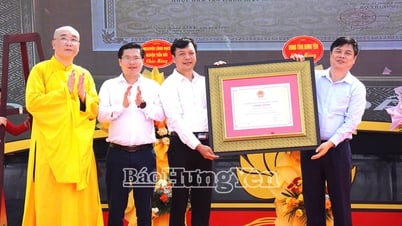































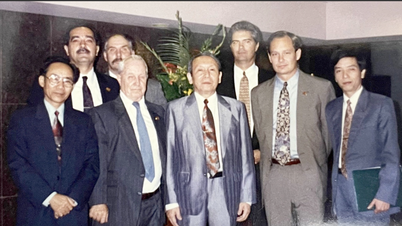


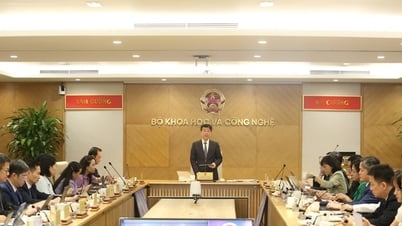





























Comment (0)